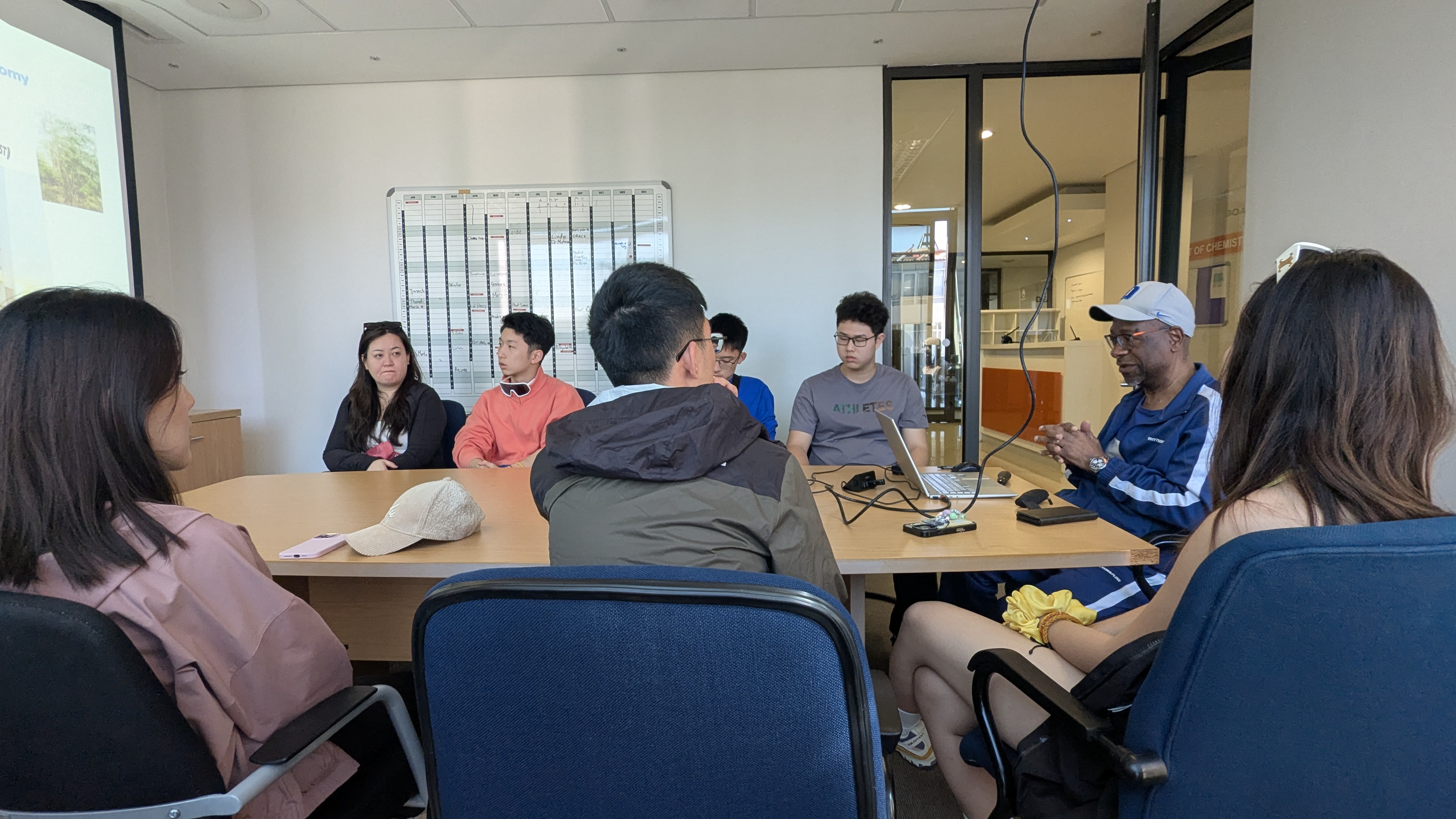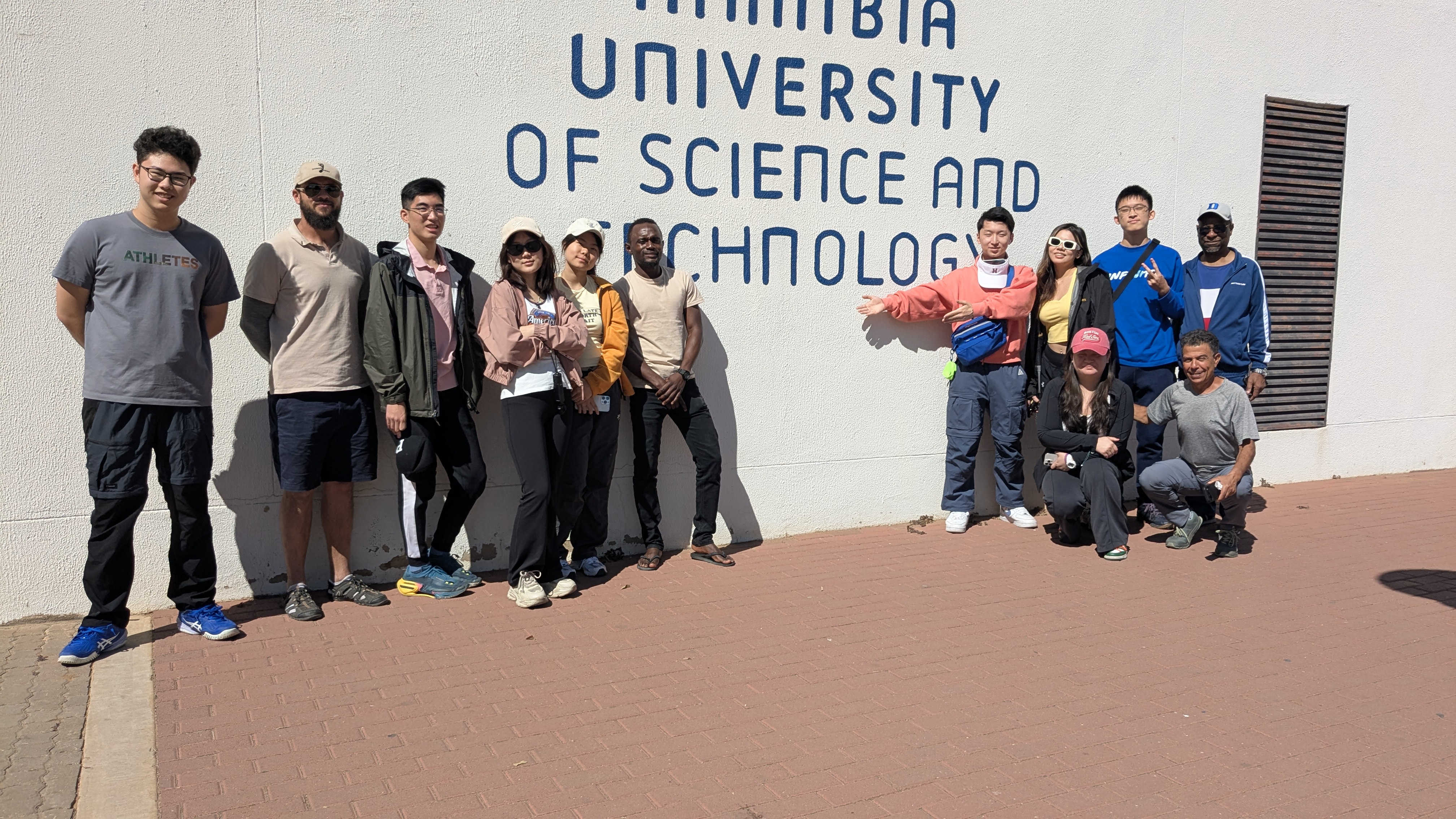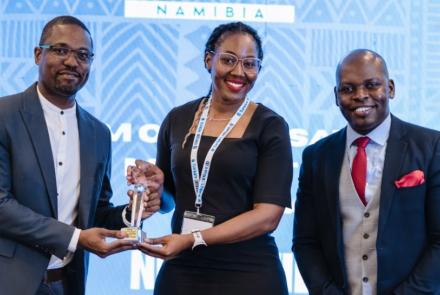Moringa – The Miracle Tree
... Chinese Students Explore Green Innovation at NUST
Earlier this month, eight students from various institutions in China visited NUST as part of their experiential learning programme in Namibia. Their destination? The Department of Biology, Chemistry, and Physics within the School of Natural and Applied Sciences, Faculty of Health, Natural Resources and Applied Sciences. The group was hosted by Prof Habauka Kwaambwa, a Professor in the Faculty.
Accompanied by Prof Abou Lachgar, a Fulbright Scholar and Fellow of the American Association for the Advancement of Science from Wake Forest University’s Center for Energy, Environment, and Sustainability (USA), the students embarked on an eye-opening exploration of Moringa, a plant celebrated for its versatility and sustainability potential.
From Water Purification to Cosmetics
Prof Kwaambwa introduced the group to the multifaceted world of Moringa within a circular economy framework, illustrating its significance in Namibia and beyond. He began with a botanical overview of Moringa oleifera, one of 13 known species, before delving into its diverse applications. The students learned how Moringa seeds can be used for water purification, exploring the mechanisms behind the process and how it compares to conventional methods. The discussion then shifted to the plant’s potential in the cosmetics industry, highlighting its nutrient-rich composition, extraction techniques, and market opportunities. Prof Kwaambwa also emphasised the role of Moringa in promoting a circular economy, showcasing how its by-products can be transformed into animal feed, biofertilizer, and biogas, as well as used in activated carbon production and carbon sequestration. “Beyond the science, our discussions delved into social and economic impacts, highlighting Moringa’s role in community empowerment, food security, and environmental sustainability,” said Prof Kwaambwa.

A Call to Innovate
This hands-on experience blended theory with practical application, sparking innovative thinking among the students. They left with a deeper appreciation of how nature-based solutions like Moringa can address global sustainability challenges, opening doors to entrepreneurial opportunities in green technologies and sustainable development.
For the students, the session not only provided unique insights, but it was a call to action to innovate and create value through science, reinforcing the importance of interdisciplinary approaches to real-world problems.





